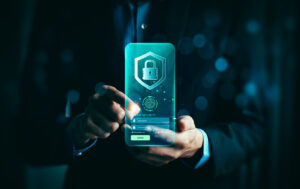The Critical Importance of Cyber Safety in the Workplace
Published on: 20 Jun 2017
Last modified on: 24 Nov 2025

In today’s digital world, prioritizing cyber safety in the workplace is essential. As businesses rely more on technology, they also face increasing threats such as phishing attacks, malware, and data breaches. Protecting sensitive information supports business continuity, employee safety, and customer trust.
By adopting strong cyber safety practices, organizations can significantly enhance cyber safety at work, reduce risks, and maintain a secure, productive environment.
1. Keep Your Passwords Secure
Treat your passwords like toothbrushes—personal and regularly replaced.
- Never share passwords
- Don’t write them down or leave them exposed
- Change them often
- Use strong, unique strings of characters
Secure passwords form the foundation of cyber safety at work.
2. Allow Access to Authorized Personnel Only
Keep your workplace safe by preventing unauthorized access.
- Do not allow tailgating
- Check visitor IDs
- Escort unfamiliar individuals to reception
Physical entry control is a key part of cyber safety in the workplace.
3. Lock Your Computer Every Time You Leave
Lock your screen, even if you step away for a minute.
Leaving your device unlocked exposes confidential data to anyone nearby.
4. Use Shared Drives or Secure Cloud Storage
Store and work from approved cloud platforms or shared drives.
This ensures your documents are backed up, secure, and protected from ransomware or system failures.
5. Don’t Click Suspicious Links or Attachments
Phishing emails are becoming more sophisticated.
Always check the sender, inspect links, and avoid opening unexpected attachments.
If something seems suspicious—don’t click it.
6. Keep Your Software Updated
Software updates fix vulnerabilities and protect your device from cyberattacks.
Enable automatic updates whenever possible and keep antivirus tools current to boost cyber safety in the workplace.
7. Never Share Sensitive Account Information
Do not share banking details or access credentials unless the request is verified.
If unsure, contact your finance or IT team before proceeding.
8. Avoid Public Wi-Fi Networks
Public Wi-Fi exposes your online activity to potential attackers.
If you must use it:
- Avoid accessing sensitive accounts
- Use a VPN
- Only connect to verified networks
Fake hotspots are a common tactic for stealing data.
9. Keep a Clean Desk
A tidy workspace prevents sensitive documents, passwords, or account details from being visible to unauthorized individuals.
Good desk discipline helps improve cyber safety at work.
10. Report Suspicious Activity Immediately
If you notice unusual behaviour—odd emails, slow performance, strange pop-ups—report it to IT right away.
Early reporting reduces damage and strengthens cyber safety in the workplace.
Strengthen Cyber Safety in the Workplace Through Training
Effective cyber protection begins with informed employees. Providing cyber awareness training helps staff recognize threats, follow best practices, and build a safer digital culture.
Explore MetaCompliance’s Human Risk Management Platform to access automated security awareness, advanced phishing simulation, and targeted training designed to protect your organization from phishing and other social engineering attacks.
FAQs About Cyber Safety in the Workplace
What is cyber safety in the workplace?
It refers to the practices and policies that protect company systems, employees, and data from cyber threats.
Why is cyber safety at work important?
It prevents data breaches, financial losses, and operational disruptions while protecting sensitive information.
How can employees improve cyber safety in the workplace?
Use strong passwords, avoid suspicious links, lock devices, and follow company cyber security guidelines.
What should I do if I suspect a cyber threat at work?
Report it to your IT support team immediately to prevent further damage and safeguard cyber safety at work.